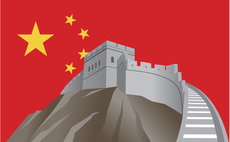"Apple has never seriously fulfilled their commitments to the public and workers," claims China Labor Watch
A new report examining working conditions at Apple's contractors building the new iPhone 7 indicates that workers are still being subjected to rights violations and wage deductions neutralising inc...
To continue reading this article...
Join Computing
- Unlimited access to real-time news, analysis and opinion from the technology industry
- Receive important and breaking news in our daily newsletter
- Be the first to hear about our events and awards programmes
- Join live member only interviews with IT leaders at the ‘IT Lounge’; your chance to ask your burning tech questions and have them answered
- Access to the Computing Delta hub providing market intelligence and research
- Receive our members-only newsletter with exclusive opinion pieces from senior IT Leaders




















